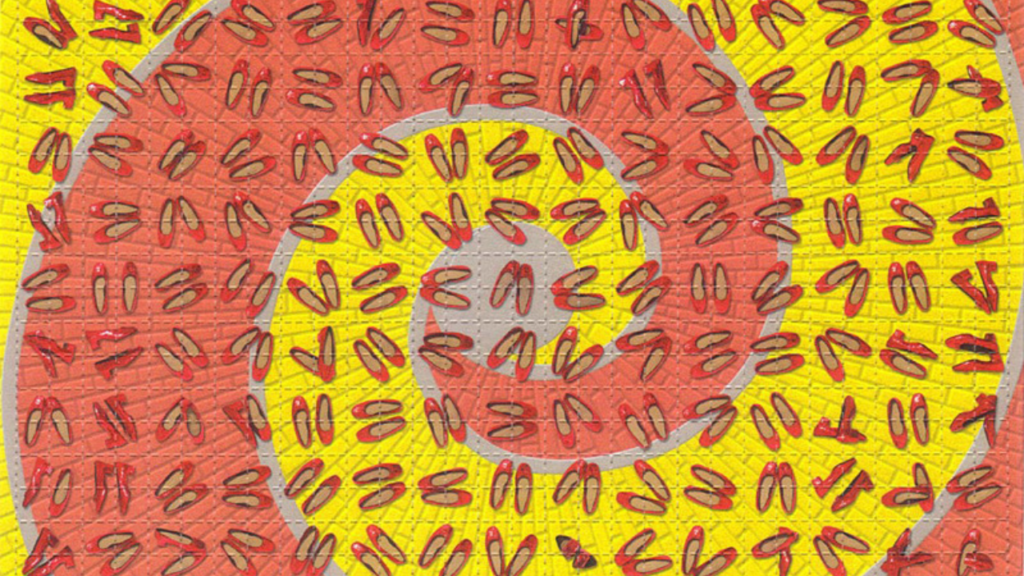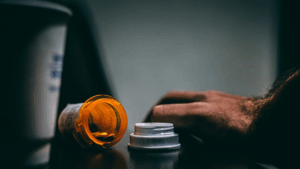Hallucinogen persisting perception disorder (HPPD) is a rare but potentially debilitating condition that can develop after using hallucinogenic drugs. People with HPPD experience persistent visual disturbances, such as seeing halos around objects, trails of light following moving objects, or intensified colors. These symptoms can be disturbing and interfere with daily life. At Swift River, a leading addiction treatment center in Western Massachusetts, we have experience helping patients with HPPD find relief and recovery.

Understanding HPPD
HPPD is a condition in which a person experiences ongoing visual disturbances that continue after the effects of hallucinogenic drugs have worn off. The disturbances are often similar to those experienced while under the influence of the drug, but without using any additional substances.
There are two types of HPPD:
- Type 1: Brief flashbacks that are random, infrequent, not distressing, and don’t interfere with functioning
- Type 2: Ongoing, persistent disturbances that are distressing and cause impairment in daily life
HPPD is a distinct condition from flashbacks that can occur with post-traumatic stress disorder (PTSD). HPPD flashbacks are purely visual and do not involve a re-experiencing of emotions or physical sensations associated with prior drug use.
What Causes HPPD?
The exact cause of HPPD is unknown, but researchers believe it develops as a result of hallucinogenic drug use causing lasting changes in the way the brain processes visual information. Hallucinogens like LSD, psilocybin mushrooms, mescaline, and MDMA (ecstasy) all carry a risk for HPPD.
Several factors are thought to increase the likelihood of developing HPPD:
- Using hallucinogenic drugs frequently or in high doses
- Having anxiety, depression, or other mental health conditions
- Combining hallucinogens with substances like marijuana or alcohol
- Family history of mental health disorders
- Personality traits like difficulty coping with stress
It’s important to note that hallucinogen use does not always lead to HPPD. The condition appears to affect only a small percentage of hallucinogen users. More research is needed to fully understand why some people develop HPPD and others don’t.
Symptoms of HPPD
The primary symptoms of HPPD are visual disturbances that persist after drug use. These can vary in type and intensity from person to person. Common HPPD symptoms include:
- Positive afterimages: A false perception of an object continuing to appear in the visual field after the actual object is no longer present
- Halos around objects
- Trails of light or color that follow moving objects
- Seeing geometric patterns or colors that aren’t really there
- Flashes of color
- Increased sensitivity to light
- Visual snow or static, often compared to the static seen on a television with no signal
- Objects appearing to move, breathe, or pulsate
- Changes in color perception, such as colors appearing especially vivid or dull
- Difficulty reading, as words may seem to move or vibrate on the page
Most visual symptoms are episodic, lasting a few seconds to a few minutes at a time, but they can also be continuous. Non-visual symptoms sometimes associated with HPPD include depersonalization (feeling detached from oneself), derealization (feeling detached from one’s surroundings), tinnitus, and in rare cases, tactile sensations like tingling.
Many people with HPPD have co-occurring mental health conditions, especially anxiety disorders. The disturbing visual symptoms can cause fear and distress, which may lead to panic attacks, avoidance of certain situations or environments, and depression.
Diagnosing HPPD
Getting an accurate diagnosis of HPPD can be challenging, as many medical and mental health professionals are not familiar with the condition. There is no specific test for HPPD. Instead, diagnosis involves a comprehensive assessment, which typically includes:
- A thorough medical and psychiatric history
- Discussion of current symptoms and their onset
- Questions about history of hallucinogen use
- Physical and neurological examination
- Vision tests to rule out eye disorders
- Psychological evaluation to assess mental health
Several other conditions have symptoms that overlap with HPPD, so it’s important to rule these out. Differential diagnoses may include:
- Posterior vitreous detachment
- Retinal tears or detachment
- Eye strain
- Ocular migraines or visual aura
- Brain tumors or head injuries
- Seizure disorders
- Schizophrenia or other psychotic disorders
- Malingering (faking symptoms for external gain)

Treatment for HPPD
Currently, there is no cure for HPPD and no treatment developed specifically for the condition. However, many patients find their symptoms can be effectively managed through a combination of medication, therapy, and lifestyle changes.
The most commonly prescribed medications for HPPD are antiseizure and antidepressant drugs. Medications like lamotrigine, valproate, clonazepam, and selective serotonin reuptake inhibitors (SSRIs) may help reduce visual disturbances and relieve co-occurring anxiety or depression. Doctors work closely with patients to find the most effective medications and doses.
Cognitive behavioral therapy (CBT) has shown promise in helping people with HPPD cope with symptoms and reduce their impact on functioning. CBT helps patients identify and change unhelpful thoughts and behaviors. For example, a person who has become fearful of social situations due to HPPD may learn relaxation techniques and gradually face feared situations to overcome avoidance.
Lifestyle changes can also make a difference for those with HPPD. Stress tends to exacerbate symptoms, so stress reduction techniques like regular exercise, mindfulness meditation, and yoga are often beneficial. Getting enough sleep, eating a healthy diet, avoiding other drugs and alcohol, and wearing sunglasses to reduce light sensitivity may also help.
Getting Help for HPPD at Swift River
At Swift River, we understand how distressing HPPD symptoms can be. Our caring team of doctors, psychiatrists, therapists, and other addiction professionals are committed to providing comprehensive, evidence-based treatment tailored to each patient’s needs.
When you come to Swift River, you’ll undergo a complete medical and psychiatric evaluation to ensure we understand all aspects of your health and recovery needs. We’ll work with you to develop an individualized treatment plan that addresses HPPD and any co-occurring substance use or mental health disorders. Your plan will include a personalized blend of medical care, individual and group therapy, and holistic support.
If you or a loved one is struggling with HPPD or addiction, reach out to the compassionate professionals at Swift River. We’ll help you break free from addictive substances, find relief from addiction symptoms, and build the healthy coping skills you need for long-term recovery. Call us today at 413-570-9698 to learn more about our renowned treatment programs and take the first step toward a brighter future.













